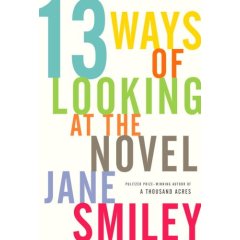The idea that I am going to state here for the first time is really nothing but
the convergence of many observations, most of them not new, that by means of
some internal attraction have gravitated toward one another, bumping through the
racket in my head. I can't put a date on the moment of crystallization, but I can say that it was
the opposite of a "Eureka" moment. Archimedes was working toward the solution of
a problem. I was just minding my own business whistling "Dixie" - "Is It True,
What They Say About Dixie?" to be exact - when the idea sloshed over me like a
barrelful of cold water. It was a new way - new to me, anyway - of understanding
how this country got to the situation that it's in.
I discussed the idea with Kathleen, who made lots of refining objections even
while she agreed more or less from the start. I may have ventured it in casual
conversations with M le Neveu and Ms NOLA. It popped up parenthetically in some
Front Pages, as the home page of Portico was called before I started
blogging. For the most part, though, I kept it to myself for months. Although I
thought it explained a great deal with a satisfying elegance, I thought that
broaching it here would simply upset people. But when I read Paul Krugman's
column this morning, I knew that it was time to get my idea into presentable
shape, because Mr Krugman had said much the same thing, with just enough
difference for me to claim a little attention for mine.
In "Tragedy in Black and White," Mr Krugman traces the origins of the Katrina
disaster - the human part of the disaster, not the storm itself - to the Civil
Rights Act. (See below for the full text.)
But in a larger sense, the administration's lethally inept
response to Hurricane Katrina had a lot to do with race. For
race is the biggest reason the United States, uniquely among
advanced countries, is ruled by a political movement that is
hostile to the idea of helping citizens in need.
Race, after all, was central to the emergence of a Republican majority: essentially, the South switched sides after the passage of the Civil Rights Act. Today, states that had slavery in 1860 are much more likely to vote Republican than states that didn't.
And who can honestly deny that race is a major reason America treats its poor more harshly than any other advanced country? To put it crudely: a middle-class European, thinking about the poor, says to himself, "There but for the grace of God go I." A middle-class American is all too likely to think, perhaps without admitting it to himself, "Why should I be taxed to support those people?"
You may think that this is far-fetched. To me, it has been God's own truth for
quite a while. The aspect that has captured my attention is the connection
between the passage of the Civil Rights Acts of 1960, 1964, and 1968 (see
Wikipedia
entry) and the erosion of American public spirit. The first unpleasant thing to
say is that solid groups almost always reaffirm their identity by demonizing an
excluded group - so there was nothing uniquely wicked about White America's
disgusting treatment of American Blacks. If I were to write "Black America"
there, I'd be committing an anachronism, because prior to the passage of the
Civil Rights Act there was no "Black America." America was a country for
Whites only; Blacks were suffered.
The Civil Rights Acts proclaimed that Blacks were equally American. At first,
this was just a law, something to be got round or accommodated. After all,
nobody could require Whites to like the new arrangement. The initial response
was "White Flight," private schooling, and recourse to clubs. This was the first
step in the abrasion of our social fabric, because it spelled the end of White
commitment to public projects. Now that the res publica was as
accessible, at least in theory, to Blacks as it was to Whites, White America
would take care of itself without relying on the government. Or by co-opting the
government through pork. Civic projects intended for the good of one and all,
however, dried up, and the United States became two countries living
side-by-side. The only crossing over was done by Black bureaucrats and, of
course, Black servants.
The second unpleasant thing that I have to say is that the initial Black
response to the Civil Rights Acts was equally regrettable, and possibly even
tragic. Tragic in flowing inexorably from centuries of injustice; tragic
precisely to the extent of its foreseeably. If Whites wanted their own America,
well, so did Blacks. Many young Black men went out of their way to make White
America's worst fears seem to come true.
As the decades passed, and increasing numbers of Blacks achieved eminence in
America, racism came to be replaced, at least in most people's minds, by poorism.
My bet is that Dick Cheney does not harbor a well-concealed contempt for
Condoleezza Rice. He accepts her - her. Many powerful and privileged
White Americans have opened their arms to the Blacks who have scrambled to their
altitudes, and I don't think that the sincerity of the welcome should be
questioned. But in the vast middle of the body politic, where people are neither
rich nor poor, such openness does not appear to have taken root. Middle-class
Whites probably do bite their tongues and pretend to be gracious. Blacks
certainly attest that they can see through the pretence. It is not clear to me
that either American wants to unite. Coexistence, yes, with minimal services in
common.
And nothing for the poor. "Why should I be taxed to support those people?" It
would not surprise me to learn that this is a biracial attitude. After all, the
Civil Rights Acts opened the door; anyone not persevering enough to escape the
pen deserves to stay there. This is poorism, and it is as bigoted as racism.
Whereas racism belabors skin color with imaginary negative attributes, poorism
just as blithely assumes that comfortable people deserve their comfort because
they have worked for it without outside help. Almost nobody in this country gets
anywhere without outside help. Sure, there are isolated cranks who make the
occasional fortune, but it is nonsense to downplay the role of connections in
achieving social and financial success. That is why little Manhattanites are
routinely confronted with batteries of admissions tests to pre-schools.
It is true that connections, in America, signify open doors, not magic carpets;
they confer the opportunity to demonstrate skills, not a guarantee against the
lack of skill. But they're vital, and luck has a lot to do with them. This
cannot be acknowledged. The power of luck is perhaps this country's deepest
taboo.
One could sigh and echo Mark 14:7 or Matthew 26:11. But even setting the awful
plight of the poor to one side, we're left with the fact that there are two
Americas that show little interest in maintaining their common fabric. That may
be why no one will attend to our soaring debt, our unraveling health-care
system, our impending fuel crises, and, perhaps most signally, the environmental
concerns that Katrina dragged right to center stage, and dumped there as an
awful truth.
Note: As of today, The New York Times no longer makes every daily feature
available at no cost. Home subscribers have access (as we damn sure ought to!),
but others must subscribe to the on-line edition in order to see such things as
Paul Krugman's column today. For that reason, I have copied the text and pasted
it here, below the jump. I am not going to make a habit of doing this, and do so
today only because the appearance of the column was of such great importance to
me.
Note: As of today, The New York Times no longer makes every daily feature
available at no cost. Home subscribers have access (as we damn sure ought to!),
but others must subscribe to the on-line edition in order to see such things as
Paul Krugman's column today. For that reason, I have copied the text and pasted
it here, below the jump. I am not going to make a habit of doing this, and do so
today only because the appearance of the column was of such great importance to
me.
Tragedy in Black and White, by
Paul Krugman
By three to one, African-Americans believe that federal aid took
so long to arrive in New Orleans in part because the city was
poor and black. By an equally large margin, whites disagree.
The truth is that there's no way to know. Maybe President
Bush would have been mugging with a guitar the day after the
levees broke even if New Orleans had been a mostly white city.
Maybe Palm Beach would also have had to wait five days after a
hurricane hit before key military units received orders to join
rescue operations.
But in a larger sense, the administration's lethally inept
response to Hurricane Katrina had a lot to do with race. For
race is the biggest reason the United States, uniquely among
advanced countries, is ruled by a political movement that is
hostile to the idea of helping citizens in need.
Race, after all, was central to the emergence of a Republican
majority: essentially, the South switched sides after the
passage of the Civil Rights Act. Today, states that had slavery
in 1860 are much more likely to vote Republican than states that
didn't.
And who can honestly deny that race is a major reason America
treats its poor more harshly than any other advanced country? To
put it crudely: a middle-class European, thinking about the
poor, says to himself, "There but for the grace of God go I." A
middle-class American is all too likely to think, perhaps
without admitting it to himself, "Why should I be taxed to
support those people?"
Above all, race-based hostility to the idea of helping the
poor created an environment in which a political movement
hostile to government aid in general could flourish.
By all accounts Ronald Reagan, who declared in his Inaugural
Address that "government is not the solution to our problem;
government is the problem," wasn't personally racist. But he
repeatedly used a bogus tale about a Cadillac-driving Chicago
"welfare queen" to bash big government. And he launched his 1980
campaign with a pro-states'-rights speech in Philadelphia,
Miss., a small town whose only claim to fame was the 1964 murder
of three civil rights workers.
Under George W. Bush - who, like Mr. Reagan, isn't personally
racist but relies on the support of racists - the
anti-government right has reached a new pinnacle of power. And
the incompetent response to Katrina was the direct result of his
political philosophy. When an administration doesn't believe in
an agency's mission, the agency quickly loses its ability to
perform that mission.
By now everyone knows that the Bush administration treated
the Federal Emergency Management Agency as a dumping ground for
cronies and political hacks, leaving the agency incapable of
dealing with disasters. But FEMA's degradation isn't unique. It
reflects a more general decline in the competence of government
agencies whose job is to help people in need.
For example, housing for Katrina refugees is one of the most
urgent problems now facing the nation. The FEMAvilles springing
up across the gulf region could all too easily turn into squalid
symbols of national failure. But the Department of Housing and
Urban Development, which should be a source of expertise in
tackling this problem, has been reduced to a hollow shell, with
eight of its principal staff positions vacant.
But let me not blame the Bush administration for everything.
The sad truth is that the only exceptional thing about the
neglect of our fellow citizens we saw after Katrina struck is
that for once the consequences of that neglect were visible on
national TV.
Consider this: in the United States, unlike any other
advanced country, many people fail to receive basic health care
because they can't afford it. Lack of health insurance kills
many more Americans each year than Katrina and 9/11 combined.
But the health care crisis hasn't had much effect on
politics. And one reason is that it isn't yet a crisis among
middle-class, white Americans (although it's getting there).
Instead, the worst effects are falling on the poor and black,
who have third-world levels of infant mortality and life
expectancy.
I'd like to believe that Katrina will change everything -
that we'll all now realize how important it is to have a
government committed to helping those in need, whatever the
color of their skin. But I wouldn't bet on it.







